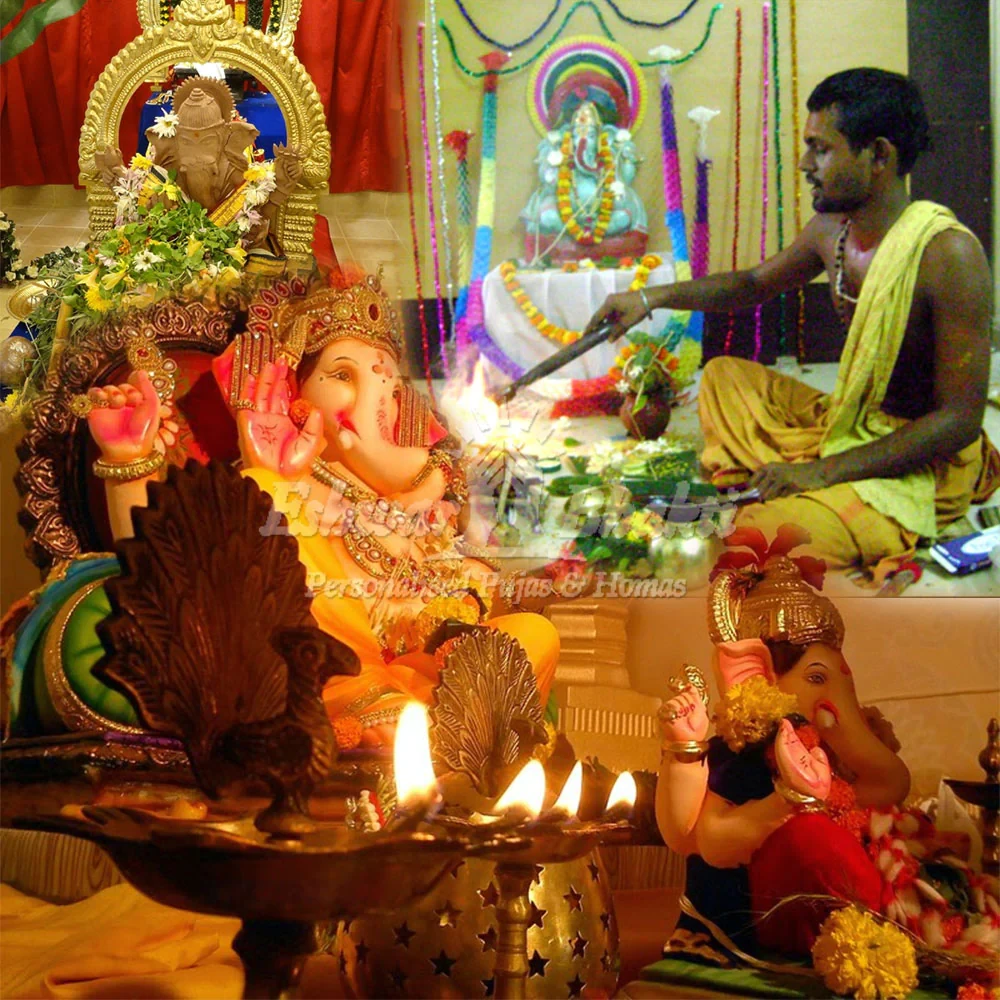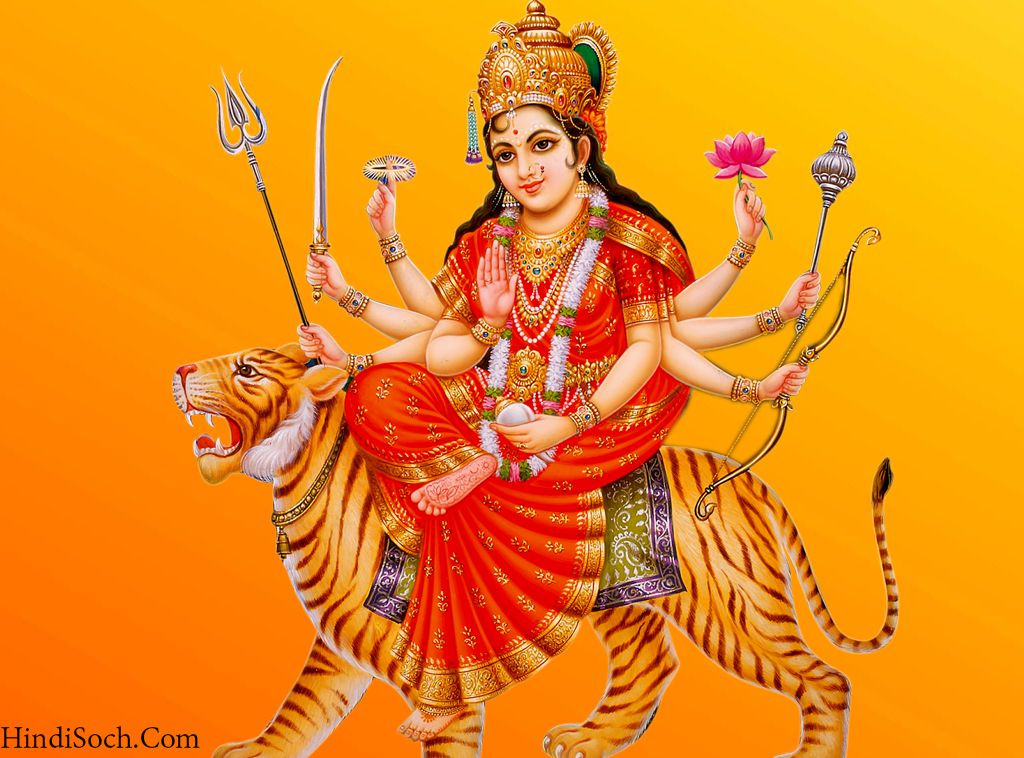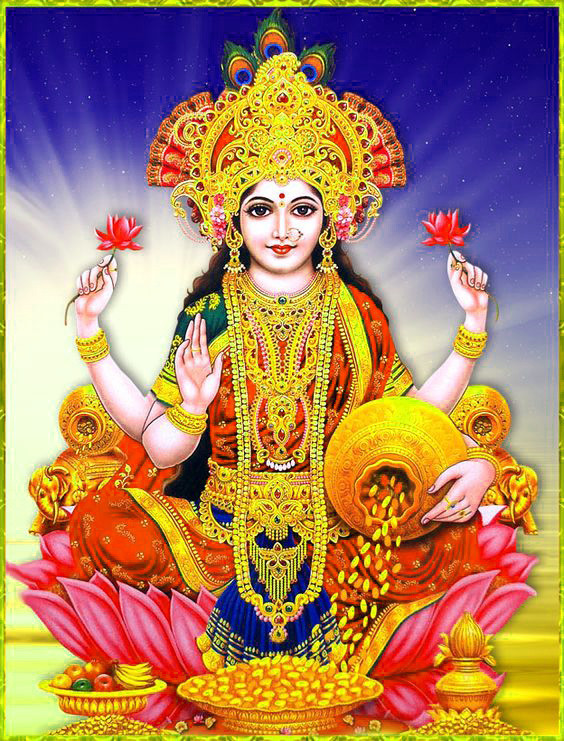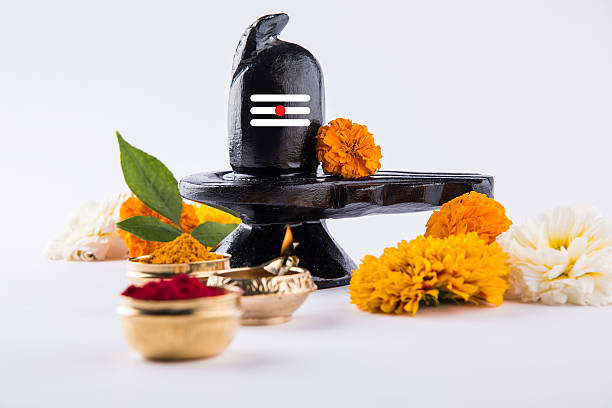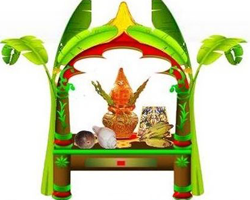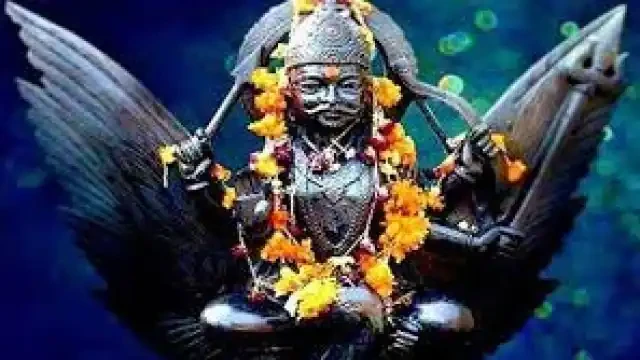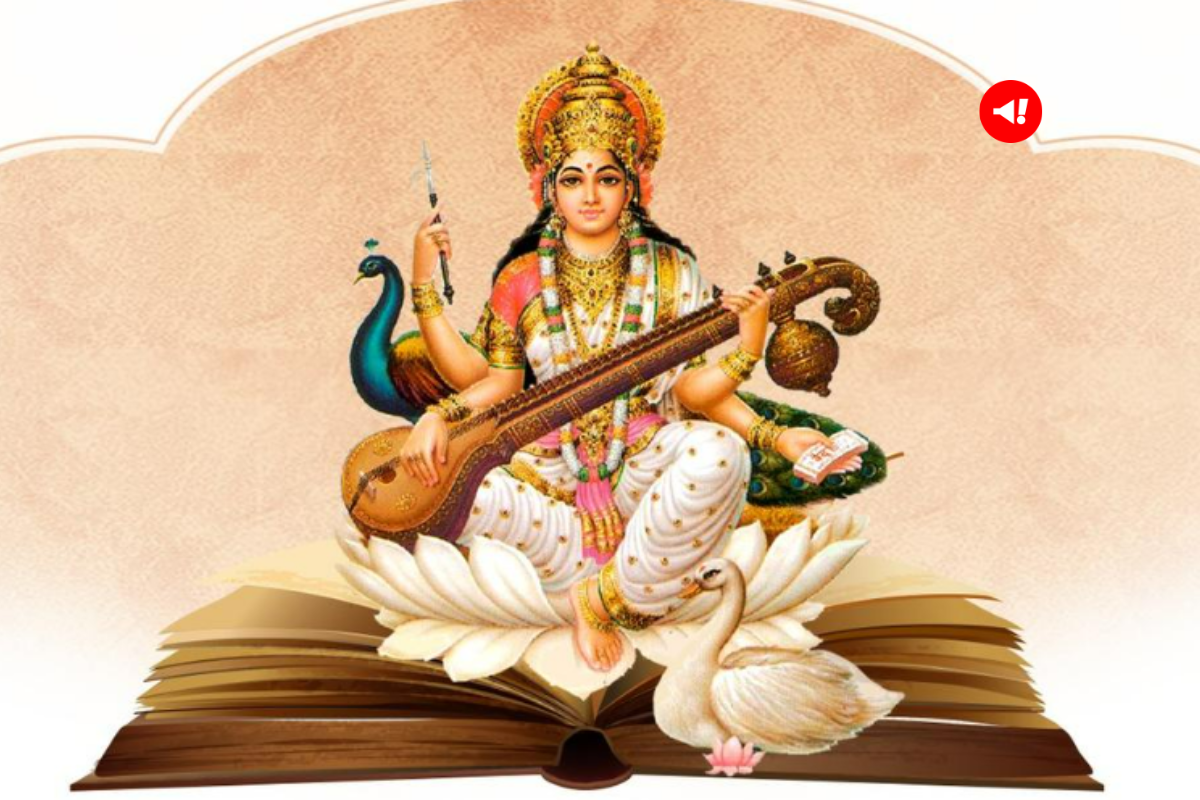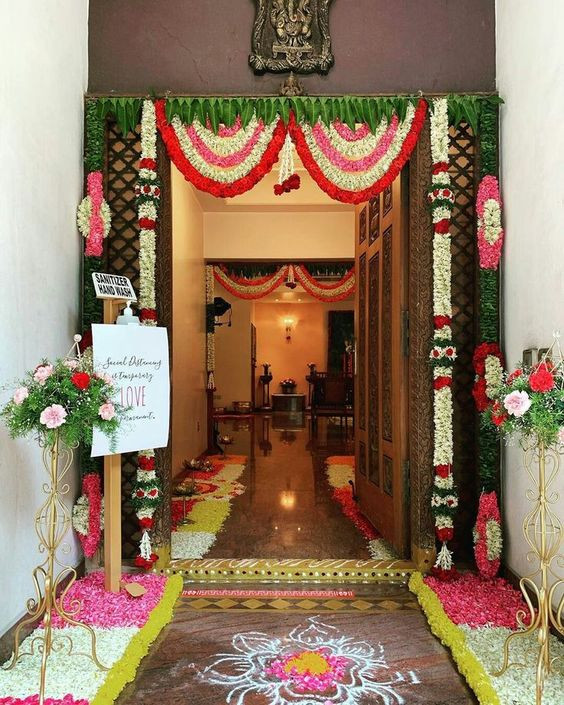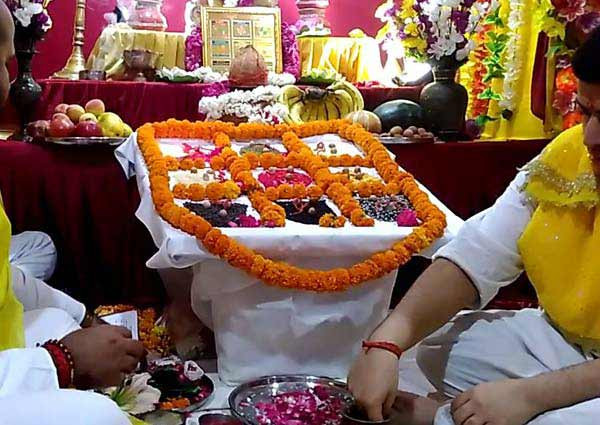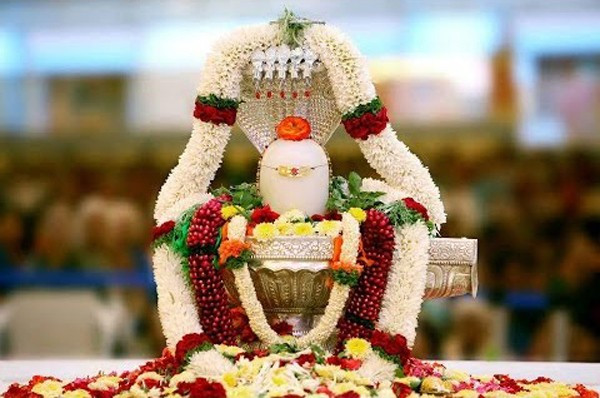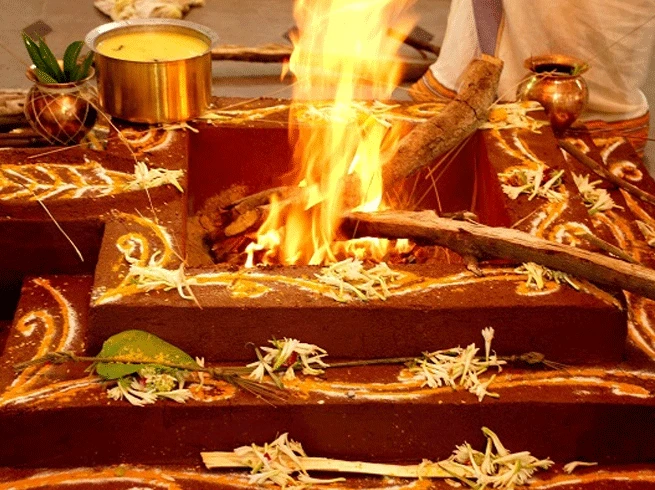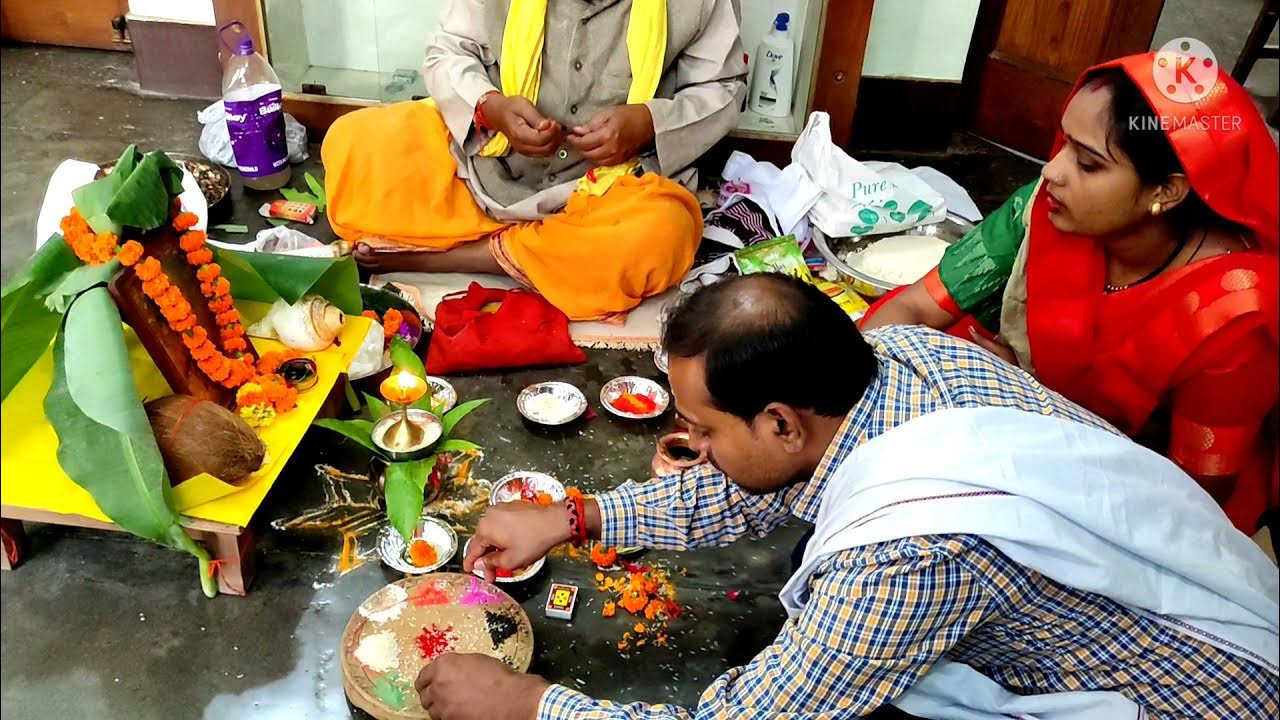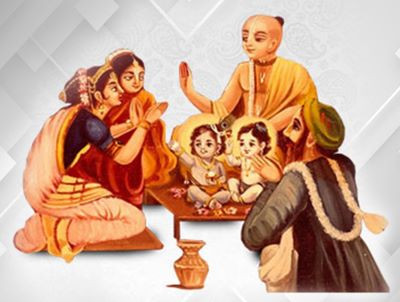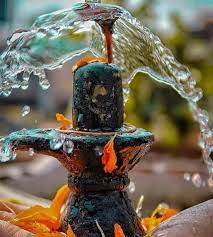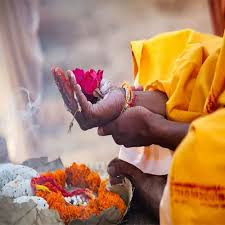
Hanuman Puja.
Hanuman Puja is a Hindu religious ritual dedicated to Lord Hanuman, who is a revered deity known for his devotion, strength, and unwavering loyalty to Lord Rama. Hanuman Puja is performed by devotees to seek the blessings and protection of Lord Hanuman. Here are the details of a typical Hanuman Puja:
**1. Puja Timing: Hanuman Puja can be performed on any day, but Tuesdays and Saturdays are considered auspicious for worshiping Lord Hanuman. The puja is often performed in the morning or evening.
**2. Preparation:
- Cleanliness: The devotee should take a bath and ensure cleanliness before starting the puja.
- Puja Space: Choose a clean and quiet place for the puja. It can be a temple, home shrine, or any sacred space.
**3. Items Required:
- Idol or Image of Lord Hanuman: A picture or idol of Lord Hanuman is required as the focal point of the puja.
- Red Cloth: Cover the idol or picture with a red cloth, as red is considered auspicious for Hanuman.
- Flowers: Offer fresh flowers to Lord Hanuman during the puja.
- Sindoor (Vermilion): Apply sindoor to the idol or picture, symbolizing Hanuman's devotion to Lord Rama.
- Oil Lamp or Diya: Light a diya or oil lamp during the puja.
- Incense Sticks: Use incense sticks for a fragrant atmosphere.
- Fruits: Offer fruits as prasad (blessed food).
- Betel Leaves and Nuts: These are often offered to Lord Hanuman.
- Hanuman Chalisa: Recite the Hanuman Chalisa, a devotional hymn dedicated to Lord Hanuman.
- Tulsi Leaves: Hanuman is especially pleased with offerings of Tulsi leaves.
**4. Puja Procedure:
- Ganesh Puja: Begin by invoking Lord Ganesha to remove any obstacles in the worship.
- Sankalp (Resolve): State your intention for performing the puja.
- Offerings: Offer flowers, sindoor, fruits, betel leaves, and nuts to Lord Hanuman.
- Lighting the Lamp: Light the oil lamp and incense sticks.
- Recitation: Recite the Hanuman Chalisa or other Hanuman prayers.
- Aarti: Conclude the puja with the singing of Hanuman Aarti.
- Prasad Distribution: After the puja, distribute prasad among family members or devotees.
**5. Devotee's Prayer:
- Devotees often express their prayers and seek Lord Hanuman's blessings for strength, courage, and protection.
Hanuman Puja is performed with deep devotion and faith, and it is believed to bring strength, courage, and spiritual well-being to the devotee. The specific details and rituals may vary based on regional traditions and personal preferences.
What you will get:
- The items and offerings provided during Hanuman Puja may vary based on personal preferences, regional traditions, and the specific rituals followed. However, here is a general list of items that are commonly provided or used during Hanuman Puja:
- 1. Idol or Picture of Lord Hanuman: An idol or picture of Lord Hanuman serves as the central focus of the puja. Devotees may choose a small murti (idol) or a framed image.
- 2. Red Cloth: A piece of red cloth is often used to cover the idol or picture of Hanuman. Red is considered an auspicious color and is associated with devotion.
- 3. Flowers: Fresh flowers, especially marigolds, are offered to Lord Hanuman as a symbol of purity, love, and devotion.
- 4. Sindoor (Vermilion): Sindoor is applied to the idol of Hanuman, symbolizing devotion and loyalty. Devotees may also apply sindoor to their own foreheads as a form of blessing.
- 5. Oil Lamp or Diya: Lighting an oil lamp or diya signifies the presence of divine light and dispelling darkness. It is an essential part of the puja.
- 6. Incense Sticks: Incense sticks are lit to create a fragrant and sacred atmosphere during the puja. The smoke is believed to purify the surroundings.
- 7. Fruits: Fresh fruits, such as bananas, apples, or any seasonal fruits, are offered as prasad (blessed food) during the puja.
- 8. Betel Leaves and Nuts: Betel leaves and nuts are often included in the offerings as they are considered auspicious and traditional.
- 9. Tulsi Leaves: Hanuman is known to be fond of Tulsi (holy basil) leaves. Offering Tulsi leaves is a way to please Lord Hanuman.
- 10. Hanuman Chalisa: The Hanuman Chalisa, a devotional hymn consisting of 40 verses dedicated to Lord Hanuman, is recited during the puja.
- 11. Ghee or Oil: Some devotees may offer ghee or oil as part of the ritual, symbolizing purity and devotion.
- 12. Coconut: A coconut may be offered as a symbol of purity, and it is sometimes broken during the puja to signify the breaking of ego.
- 13. Prasad: After the puja, the blessed items, including fruits and sweets, are distributed among the devotees as prasad.
- These are general items associated with Hanuman Puja, but the specific items and rituals may vary. Devotees may also include additional items or conduct specific prayers and rituals based on their family traditions and personal preferences.
Benifits of the Package:
- Devotees believe that performing Hanuman Puja with devotion and sincerity can bring various spiritual and worldly benefits. While the spiritual benefits are often emphasized, individuals may also seek blessings for specific aspects of their lives. Here are some perceived benefits of Hanuman Puja:
- 1. Strength and Courage: Hanuman is revered for his immense strength and unwavering courage. Devotees seek his blessings to gain inner strength, resilience, and courage to face challenges in life.
- 2. Protection from Negative Forces: Worshipping Hanuman is believed to provide protection from negative energies, evil forces, and adversities. Devotees seek his divine intervention for spiritual and physical protection.
- 3. Devotion and Surrender: Hanuman is known for his unparalleled devotion to Lord Rama. Devotees perform Hanuman Puja to cultivate a sense of deep devotion and surrender to the divine.
- 4. Removal of Obstacles: Devotees believe that invoking Hanuman's blessings can help remove obstacles and hurdles from their path, whether in spiritual or worldly pursuits.
- 5. Health and Well-being: Hanuman is associated with vitality and well-being. Worshipers seek his blessings for good health, healing, and overall well-being.
- 6. Peace of Mind: Devotees perform Hanuman Puja to attain mental peace and tranquility. It is believed that Hanuman's blessings can bring a sense of calmness and emotional stability.
- 7. Spiritual Enlightenment: Seeking Hanuman's blessings is considered a step toward spiritual enlightenment. Devotees aim to deepen their spiritual understanding and connection with the divine through Hanuman Puja.
- 8. Success in Endeavors: Hanuman is often regarded as a symbol of unwavering devotion and dedication. Devotees pray for success in their endeavors and the strength to overcome challenges.
- 9. Fulfillment of Wishes: Devotees believe that praying to Hanuman with devotion can lead to the fulfillment of sincere wishes and desires.
- 10. Family Harmony: Hanuman is also worshipped for the well-being and harmony of the family. Devotees seek his blessings for a peaceful and harmonious family life.
- 11. Protection During Travel: Hanuman is considered the divine protector during travels. Devotees may seek his blessings for a safe journey and protection from accidents.
- It's important to note that the benefits mentioned here are based on religious and cultural beliefs. While the spiritual aspects are emphasized, individuals may also seek practical outcomes and positive changes in various aspects of their lives through the practice of Hanuman Puja.
Service Availability
- Sunday 08:00 AM - 02:00 PM
- Monday 08:00 AM - 02:00 PM
- Tuesday 08:00 AM - 02:00 PM
- Wednesday 08:00 AM - 02:00 PM
- Thursday 08:00 AM - 02:00 PM
- Friday 01:00 AM - 05:30 AM
- Saturday 01:20 AM - 12:40 PM

